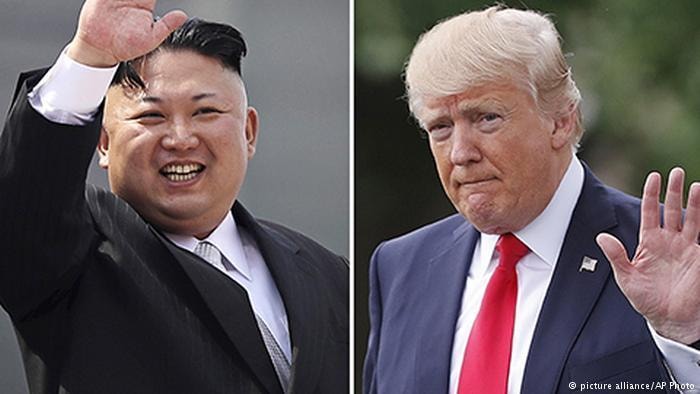Does the US have a 'chance of winning' in the North Korean crisis?
(Baonghean.vn) - Donald Trump's options on the North Korea issue are very limited, because Kim Jong-un himself is the one who decides on nuclear and missile tests. The US cannot trust China and must look for a neutral negotiator.
 |
| North Korean leader Kim Jong-un and US President Donald Trump. Photo AP |
North Korea’s hydrogen bomb test on September 3rd must be a matter of grave concern to the United States. Just one such bomb, used in an attack, could wipe out a city the size of New York. A hydrogen bomb detonated over Silicon Valley could completely paralyze the operations of American tech giants like Apple, Facebook, and Google. And Pyongyang will soon have the means to carry out such attacks.
The United States has so far failed to stop North Korea’s nuclear and missile programs. It has been 11 years since the United Nations Security Council imposed sanctions on North Korea after it conducted its first nuclear test. Since then, the Pyongyang regime has steadily improved its nuclear attack capabilities. From Washington’s recent reactions to North Korea’s nuclear and missile tests, it is clear that the United States did not expect the current results and was completely unprepared to deal with the situation.
US President Donald Trump has threatened the regime in North Korea. But neither a conventional nor a nuclear strike is a realistic option for Washington. South Korea and Japan, US regional allies, would support it, as they would be the direct victims of any retaliatory strike. And if the US chooses to apply pressure by stepping up sanctions on North Korea and waiting for them to take effect, Pyongyang will have more time to perfect its missiles.
North Korea wants to negotiate a peace treaty with the assurance that sanctions will be lifted. But that’s not all; it also wants international recognition as a nuclear state. North Korean officials cite the example of Pakistan, which the United States accepts as a nuclear state. So in negotiations with North Korea, the United States may have to abandon its demand for a nuclear-free Korean Peninsula. It might negotiate a limit on its nuclear arsenal, but nothing more. But that would be unacceptable to Seoul and Tokyo.
China’s double-dealing is also angering the Trump administration. The United States relies on Beijing to enforce UN sanctions against North Korea. But Chinese President Xi Jinping is pursuing his own goals. A proposed oil embargo on North Korea would not have Chinese support. Second, Beijing wants to weaken Washington’s influence in East Asia. Pyongyang’s nuclear and missile programs are proving useful to Beijing in the face of the US-South Korea-Japan alliance.
Russia, by all accounts, is not a neutral party in the Korean conflict. The idea that Russian President Vladimir Putin wants to embarrass the United States cannot be dismissed. The rapid advancement of North Korean missile technology raises suspicions about Russian assistance, although there is no hard evidence of it. In any case, the shifting balance of power in the Far East underscores Russia’s importance in the region. Moscow’s insistence on dialogue rather than increased sanctions fits this role.
From many angles, it seems that the United States is the main loser in the current Korean conflict. President Trump's tweets about North Korea also expose this reality.
Washington should seek a neutral mediator to resolve the conflict, such as Sweden or Germany. However, this would require a greater maturity in Washington that has been lacking for a long time.
Phu Binh
(According to DW)
| RELATED NEWS |
|---|
